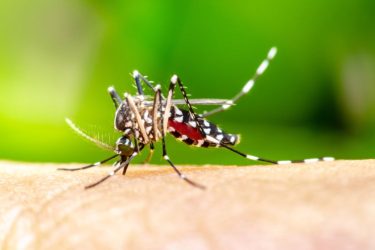
A single dose of monoclonal antibody (mAb) CIS43LS provided high levels of protection against malaria in a challenge study, according to new research.
“While previous research suggests that monoclonal antibodies can be effective against malaria using higher dose IV infusions, this new study finds that the prophylactic treatment can also provide a high-level of protection with just a single injection,” stated Dr Dean Mark T Gladwin, Vice President for Medical Affairs, University of Maryland, Baltimore, and the John Z and Akiko K Bowers Distinguished Professor.
“That’s a potential game changer that could provide a practical way to deploy monoclonal antibody therapies in African countries,” added Dr Gladwin.
The monoclonal antibody challenge study
In the investigation, the researchers at University of Maryland School of Medicine (UMSOM) described the final dose selection section of a three-part clinical trial.
In the first two parts of the trial, researchers administered 20 or 40mg/kg of the mAb via IV infusions. CIS43LS was found to give high levels of protection. In the current study, 29 participants, ages 18 to 50 years, who had no prior malaria infections or vaccinations, received a single dose of CIS43LS in doses of 1, 5, or 10mg/kg via IV infusions, or by subcutaneous injection.
Subcutaneous administration is an easier method of delivery and allows for widespread distribution.
Participants were bitten by five mosquitoes infected with a Plasmodium falciparum strain of malaria about eight weeks after they were given the mAb.
A single dose of the monoclonal antibody at 5-10mg/kg administered subcutaneously or intravenously provided high level protection against a controlled human malaria infection. Partial protection was achieved at 1mg/kg, administered intravenously . Eight control participants who did not receive the mAb all developed malaria. All participants were monitored for 24 weeks.
Adverse events (AEs) from the mAb were mild and included pain or redness at the infusion site, headache, abdominal pain, and hypertension, which resolved within a day.
Immunologic studies suggest a level of protection that might extend to six months after administration.
Further investigation of CIS43LS
The study authors indicated that additional research is needed to explore whether the mAb can be used for long-term protection and to determine optimal dosage in African children. Phase II clinical trials are underway in Mali and Kenya.
The National Institute of Allergy and Infectious Diseases (NIAID), Intramural Research Program, National Institutes of Health (NIH) funded this research.
The Center for Vaccine Development and Global Health (CVD) at UMSOM was the first centre in the world to develop controlled human malaria infection studies, providing proof of principle that live attenuated malaria vaccines protect against infection.
The research was published in The Lancet Infectious Diseases.
NEWS: L9LS antibody safe and highly protective against malaria, finds study…
The post Monoclonal antibody could prevent malaria, study shows appeared first on European Pharmaceutical Review.

